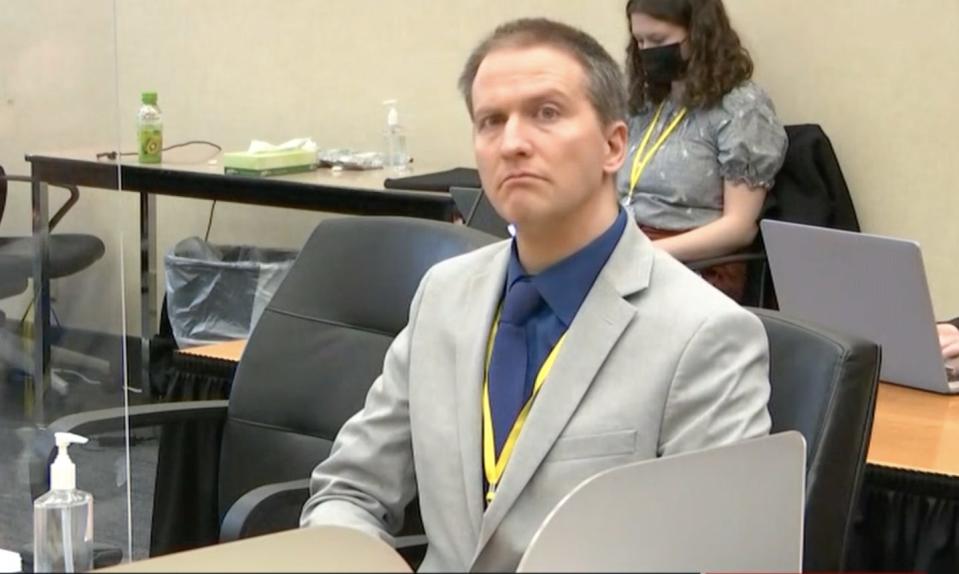Derek Chauvin was indicted in the arrest of a 14-year-old whom prosecutors say he knelt on for 17 minutes and hit with a flashlight

Derek Chauvin faces a civil-rights charge in the violent arrest of a 14-year-old in 2017.
Prosecutors say Chauvin hit the boy with a flashlight and knelt on his back and neck for 17 minutes.
Chauvin is accused of using his authority as an officer to deprive the teen of his rights.
A federal grand jury has indicted the former Minneapolis police officer Derek Chauvin on a civil-rights charge in the 2017 arrest of a 14-year-old boy.
The charge was announced Friday, the same day Chauvin and three other former officers were indicted on additional civil-rights charges in the death of George Floyd.
Federal prosecutors accuse Chauvin of using his authority as an officer to deprive the Black teenager of his constitutionally protected civil rights. Chauvin held his knee to to the teen's upper back and neck for 17 minutes while he lay prone, was handcuffed, and was not resisting, according to the federal indictment.
Details of the 2017 incident came to light last month during Chauvin's murder trial.
In a court filing, the Minnesota state prosecutor Matthew Frank said videos from the arrest show Chauvin striking the teenager in the head and then pinning him to the ground with his knee for nearly 17 minutes, ignoring complaints that the teen couldn't breathe.
Chauvin and another officer had been called to the teen's home after his mother reported that her two children had assaulted her, according to the filing. The officers told the boy, who was lying on the floor, that he was under arrest, and then Chauvin struck him several times with a flashlight before putting him in the prone position.
Chauvin hit the boy with the flashlight, then grabbed his throat and hit him again in the head with it, according to the filing. The teen called out for his mother and for the officers to stop hurting him, the indictment said.
He bled from his left ear and later was hospitalized to get stitches, according to the filing.
Videos of the arrest first surfaced last year but did not lead to state charges.
The incident echoes Floyd's murder in May 2020. Floyd was also prone and handcuffed when Chauvin knelt on his back and neck for more than nine minutes while he pleaded for his life and said he couldn't breathe.
Chauvin was convicted of second-degree murder, third-degree murder, and manslaughter in Floyd's death and is awaiting a June sentencing in that case.
His defense attorney, Eric Nelson, recently requested a new trial, alleging misconduct by the jury and prosecution.

Chauvin is accused of using the 'color of law' to deprive both the teen and George Floyd of their rights
The civil-rights charge against Chauvin and three other Minneapolis officers involved in Floyd's death is the most common offense brought in prosecuting law-enforcement officers or prison guards accused of using unjustified force on a suspect.
A jury doesn't need to find that the defendants charged with this offense were motivated by the race, religion, sex or other protected designation of the victim, just that the officers deprived them of their rights and knew that they were doing so.
The offense is punishable by up to life in prison or the death penalty, depending upon the circumstances of the crime, but the sentence could also be much more lenient. Judges have wide discretion on the sentences they impose in federal cases.
Civil-rights cases brought against law-enforcement officers also have a demanding burden of proof, experts say.
"It is that willfulness that can be tricky to prove," Barbara McQuade, a former US attorney for the Eastern District of Michigan, previously told Insider. "It has to show that the deprivation of rights was deliberate, and so you'd have to have evidence that showed the person knew that they were violating the person's constitutional rights."
Read the original article on Insider

